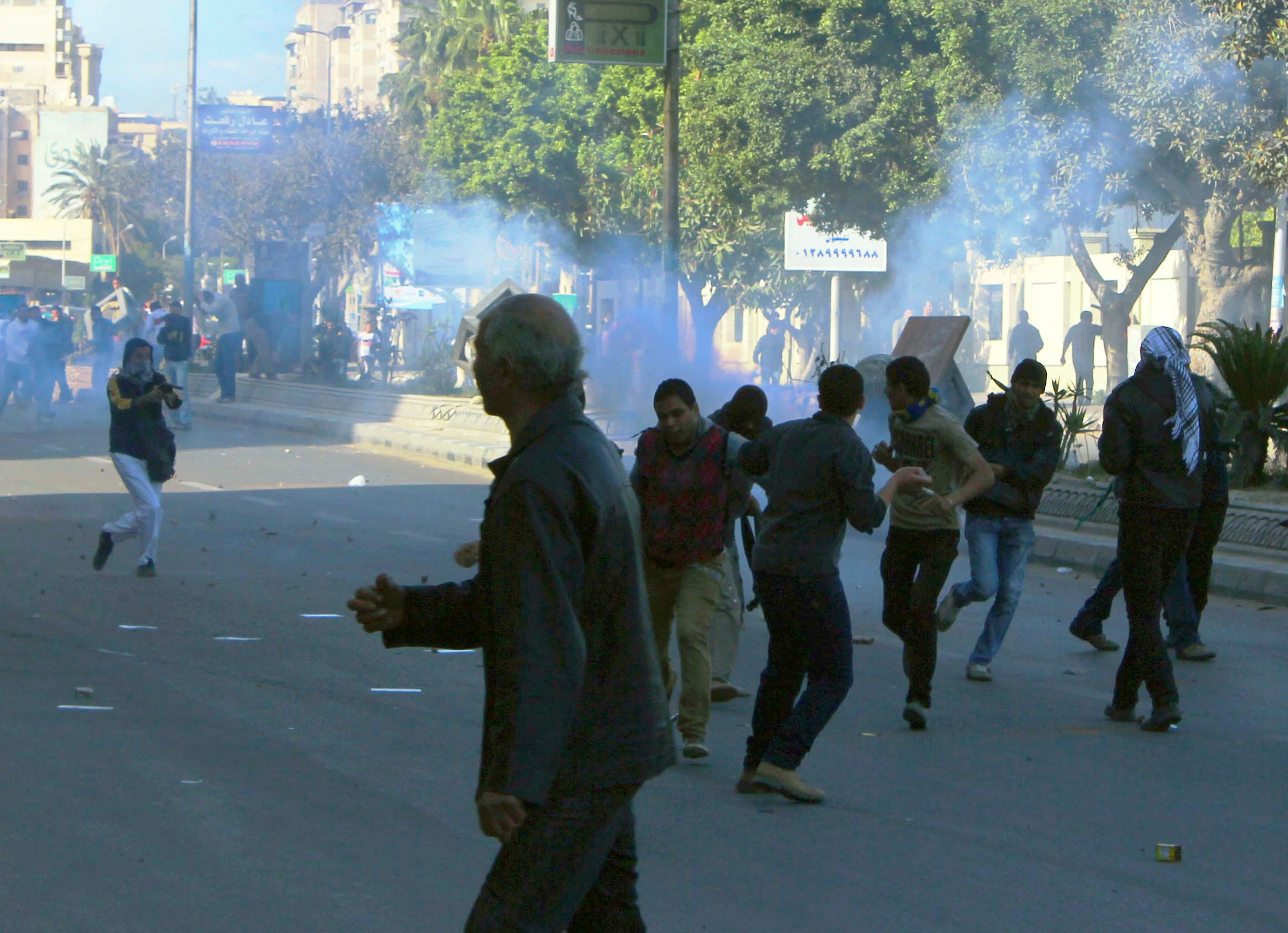By Marwa Al-A’asar
CAIRO: Activist Wael Ali Aboul-Leil accused of conducting “counter-revolutionary activities” reportedly began a hunger strike earlier this week at Tora Prison where he is being held, to object to the constant renewal of his detention.
Aboul-Leil was charged with forming a cell that counters personal and public freedoms and social peace as well as ignites strife between the army and the people.
“The strangest part of the case is that no other cell members have been mentioned or identified — so apparently it is a one-member cell,” said Moustafa Mahmoud, lawyer representing Aboul-Leil.
“There is no [concrete] evidence … The case only depends on witnesses; some testified in his favor while others testified against him,” Mahmoud told Daily News Egypt.
Aboul-Leil was remanded in custody twice for 15 days each pending further investigation into the charges. Legally, detentions can only be renewed three times, a total of 45 days, after which a prisoner is either released or put on trial.
According to Mahmoud, the official fact-finding commission assigned to investigate the incidents of the January 25 uprising is the entity interrogating 41-year-old Aboul-Leil. The commission has similar authorities to the prosecution and investigative judges.
Earlier in May, a military court acquitted Aboul-Leil of accusations of inciting thuggery against protesters and the armed forces in Tahrir Square on April 8 and the early hours of the following day. However, he was not released.
“Instead, Aboul-Leil was remanded in custody over other charges,” Mahmoud said, adding that the prosecution has refused to allow him to review the case file.
“The testimonies against Aboul-Leil lack credibility as those who testified against him in the other case of which he was acquitted are the same [who testified] in this one,” Mahmoud argued.
Lawyer at the Switzerland-based AlKarama for Human Rights organization Mohamed Mefleh argued that the charges against Aboul-Leil are “political rather than criminal.”
“Forming a cell or having a negative impact on social peace are accusations that belong to the former regime,” Mefleh argued. AlKarama filed a complaint with the United Nations Working Group on Arbitrary Detention regarding Aboul-Leil’s case.
On April 8, eight uniformed army officers joined tens of thousands of protestors in Tahrir Square. They called for the resignation of Defense Minister and Head of the ruling Supreme Council of the Armed Forces (SCAF) Field Marshal Mohamed Hussein Tantawy and demanded the prosecution of ousted president Hosni Mubarak.
In the early hours of April 9, army soldiers dispersed an overnight sit-in in the iconic square, with one protester shot dead by an unidentified shooter. Eyewitnesses said protesters were protecting the dissident army officers from being detained.
The SCAF called the protesters “outlaws,” suggesting they might be led by senior members of the dissolved National Democratic Party (NDP), including Ibrahim Kamel, also accused of involvement in the Feb. 2 attacks in Tahrir dubbed “Battle of the Camel.”
In its 34th statement, the SCAF announced that Kamel’s followers and others including Aboul-Leil, identified as his office manager, were to be arrested. The statement accused them of being in Tahrir Square during the curfew early on April 9, bullying and terrorizing civilians.
However, in a video recording uploaded on YouTube on April 10, Aboul-Leil denied that he had ever worked for Ibrahim Kamel. “It seems somebody heard me … in Tahrir while I talked to a lawyer saying I worked for somebody called Kamel Abu Ali. Sometime later, rumors spread indicating I was working for Ibrahim Kamel who hired thugs [to attack protesters],” Aboul-Leil said.
“I have never met Kamel or even know what he looks like,” he added.
Aboul-Leil was working in the tourism sector in Hurghada when the revolution erupted.
He handed himself in to military police a few days after a press conference at Al-Ghad Party where he attempted to clear his name.
Youth Coalition member Shady El-Ghazaly Harb told DNE that he saw Aboul-Leil several times protesting in Tahrir before Mubarak stepped down on Feb. 11, and that he got to know him personally later on.
Harb denied that Aboul-Leil had anything to do with the former regime or the NDP. He expressed surprise that Aboul-Leil is still in custody though he was among nine other witnesses who testified in his favor in the new case, affirming he was a revolutionary activist.
Outspoken TV host and writer Wael El-Ebrashy mentioned similar facts about Aboul-Leil in media statements.
Harb accused some members of the Muslim Brotherhood (MB) of falsely implicating Aboul-Leil in a bid to eliminate political rivals after both sides had a disagreement over the speakers taking the stage in Tahrir.
“But I cannot confirm the kind of clash as I haven’t witnessed it personally,” Harb said. “Following Aboul-Leil’s arrest, several Brotherhood members fiercely criticized Aboul-Leil, accusing him of thuggery, an accusation later proved untrue at court.”
In the video, Aboul-Leil said he never attempted to get on stage to give a speech. “It was the podium representing the voice of Tahrir. So I accompanied … the families of the revolution martyrs from Matariya district who wanted to witness [the symbolic] trial of Mubarak on that day,” he said.
Harb was surprised that human rights groups are unaware of Aboul-Leil’s case, saying that the MB’s impact on the media may have hindered the case from reaching the public.
Senior MB member Mohamed El-Beltagy denied that any of the group’s members accused Aboul-Leil of anything or gave any media statements about him. “The disagreement with Aboul-Leil was personal … and brief. It was only in Tahrir on April 8,” El-Beltagy told DNE.
“His family called on us to testify… and we replied saying we could not testify either against or in favor of him,” he added.




